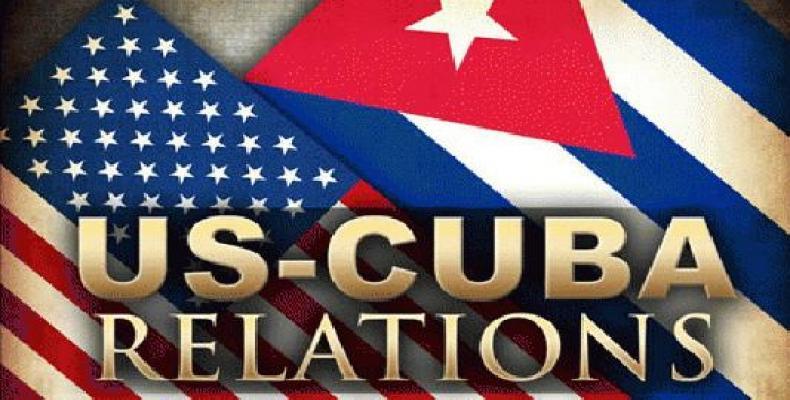New York, January 8 (RHC)-- When U.S. President Barack Obama officially announced plans to restore diplomatic ties with Cuba, the minds of many U.S. people immediately went to cigars or rum, or cigars and rum. But for some Cubans, Cuban Americans, and even Cuban enthusiasts across the country, the decision, announced on December 17th, stirred up different sentiments, reported Irene Chidinma Nwoye in an article published by the New York Village Voice website on Thursday.
More than a thousand miles from the small Caribbean island, Cuban Americans and Cuba scholars in New York are venting their excitement, disappointment, and fear. Some say it's been a long time coming; others are outraged that Obama has thrown a lifeline to a communist regime, Chidinma Nwoye wrote.
"None of us thought it would take 42 years from the time we started working [in 1972]," says Sandra Levinson, the executive director of the Center for Cuban Studies in Chelsea. Her office at the center's art space is littered with Cuban sculptures and literature, as well as pictures and portraits of Che Guevara, José Marti, and a young Fidel Castro. "Nobody thought it would take eleven presidents. Nobody thought it would take 55 years for a country to be recognized."
A self-proclaimed socialist who has visited Cuba more than 300 times, Levinson says the nonprofit center is committed to improving U.S. relations with Cuba by arranging trips to the island and educating Americans about the country's art, culture, and history.
Beyond physical scarcity, Levinson — a former political science instructor at the City College of New York — says the decades-old U.S.-Cuban policy of non-normalization and non-recognition also blighted the dignity and history of the Cuban people. Especially considering that the two countries were close cultural allies before the 1959 revolution. "Places like New Orleans and Havana had a long shared musical history," she says.
During the course of her work, Levinson has had to challenge the blockade. In 1991, the center won a pioneering lawsuit against the U.S. Treasury Department that made it legal to import original Cuban art. Today, Levinson has thousands of artworks, photographs, and posters in her Cuban Art Space on West 29th Street, which she opened in 1999. The Center's people-to-people license allows Americans to travel with them on guided tours to Cuba. Because of the travel ban, there are no commercial flights to Cuba. So the center uses charter flights from Miami. Levinson sees Obama's announcement as a crucial step on a long road to revising regulations governing travel to the island.
New York–based filmmakers like Cuban-born Roberto Monticello want the blockade announcement to lead to much-needed funding for making feature films in Cuba that will be accessible to U.S. audiences.
Monticello has approached the Weinstein Company, Miramax, and Warner Bros., all of which told him the same thing: “Americans can't do business in Cuba, and filmmaking is a business. Those who break the law are fined heavily.” One salient example: musician Ry Cooder's $25,000 fine for violating the Trading With the Enemy Act by producing the 1997 set-in-Cuba studio album Buena Vista Social Club.
Monticello was in Cuba on the historic December 17th for the annual film and jazz festivals. People were celebrating and crying on the streets when Raúl Castro spoke about re-establishing ties with the U.S., he says. More than anything else, the decision spells hope for the Cuban people and Monticello's filmmaking ambitions.
Like Levinson and Monticello, restaurant owner Ramon Diaz feels the decision was long overdue. Since the Obama speech, Diaz, a first-generation Cuban American of Spanish descent, has received phone calls from his cousins, ecstatic about doing business in their native country. But he cautions them that it likely won't be that easy. Even so, he admits that, psychologically, this is a huge step for Cubans back home and abroad.
"Most of my generation of Cuban Americans agree the embargo never worked, although our parents were hurt by the revolution and the nationalization of industries," Diaz, the 51-year-old owner of Harlem's Floridita, says.
If and when the embargo is loosened, Diaz hopes to finally set foot on Cuban soil with his family, do business with people he identifies with culturally, and even retire there. Cuba, he believes, will end up becoming a haven for hundreds of thousands of Cuban Americans like himself simply because of its wide socioeconomic safety net.
"They have free health care, free education, their housing is guaranteed," Diaz says. "If my father hears me speaking like this, he'll probably slap me, but you have to be realistic about it."


